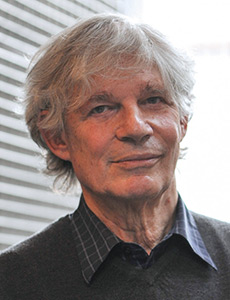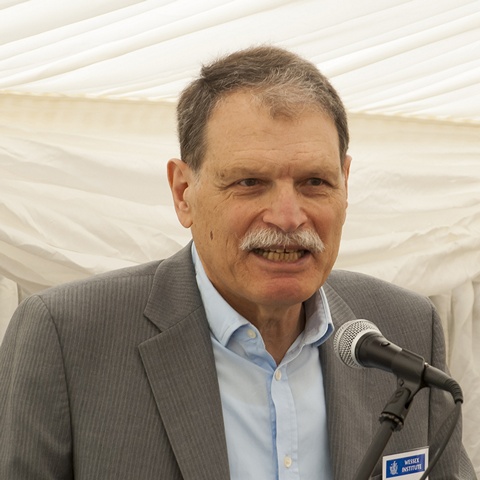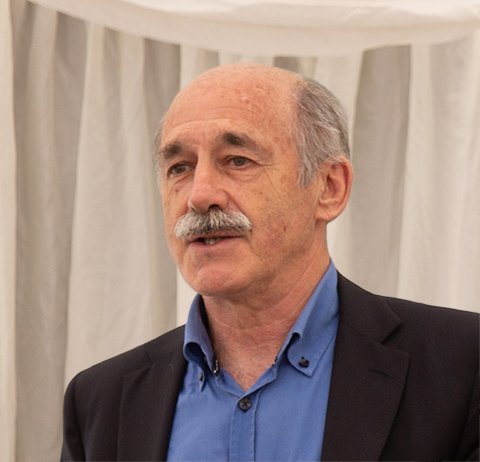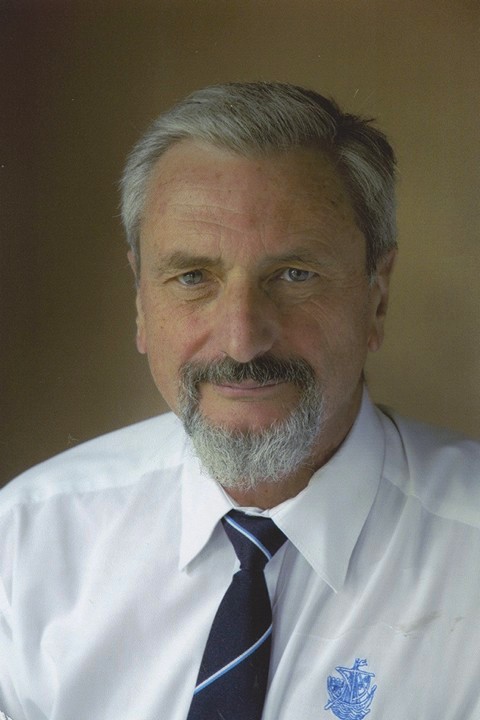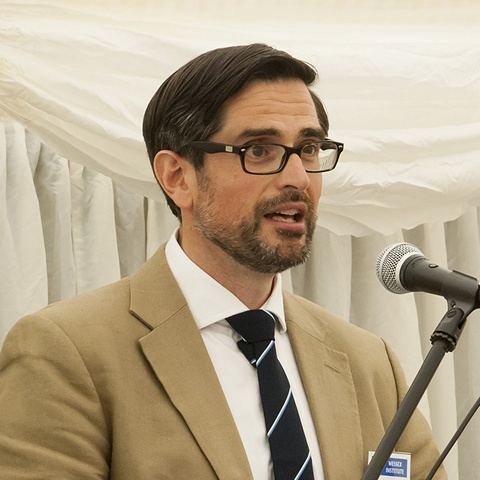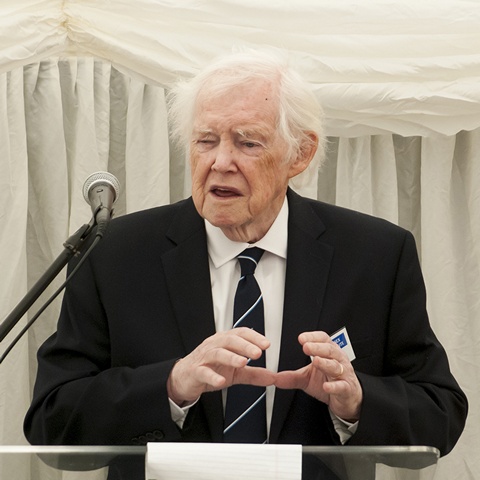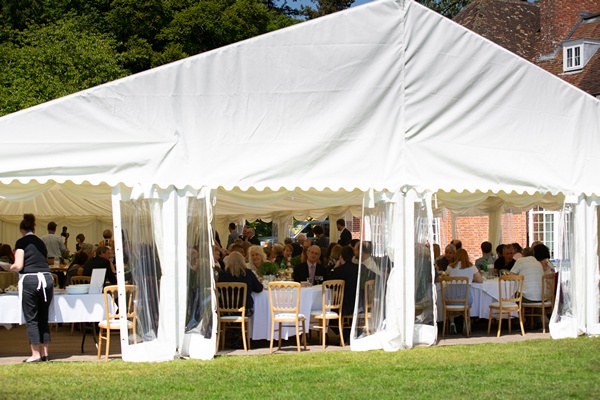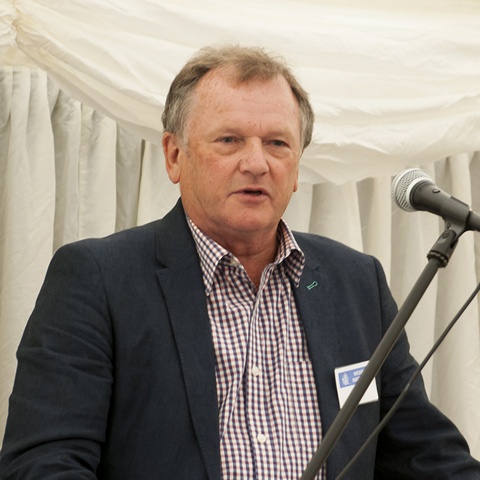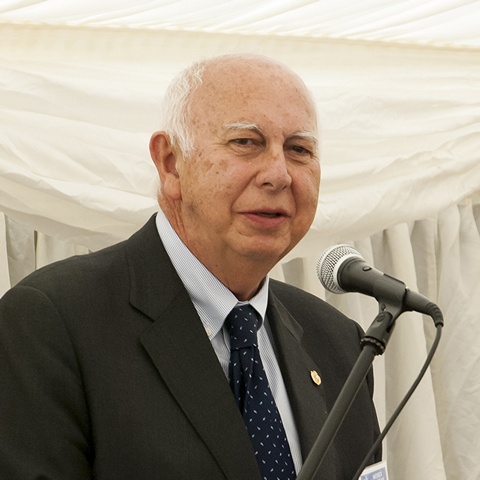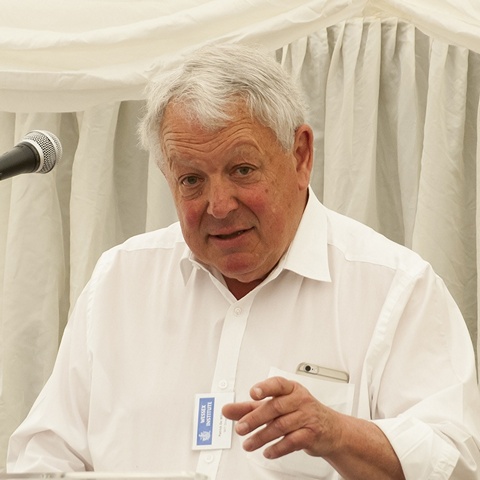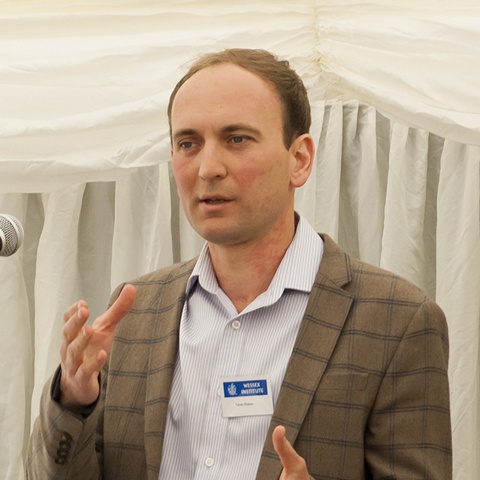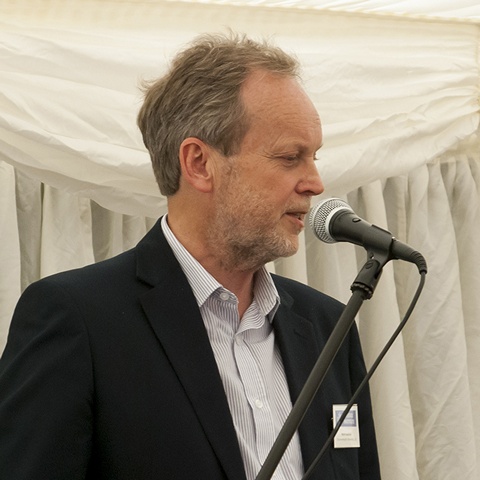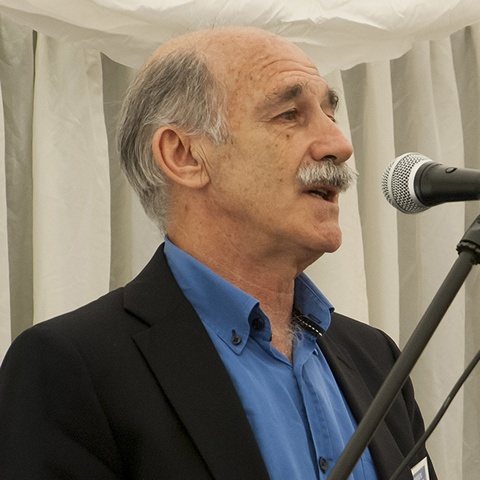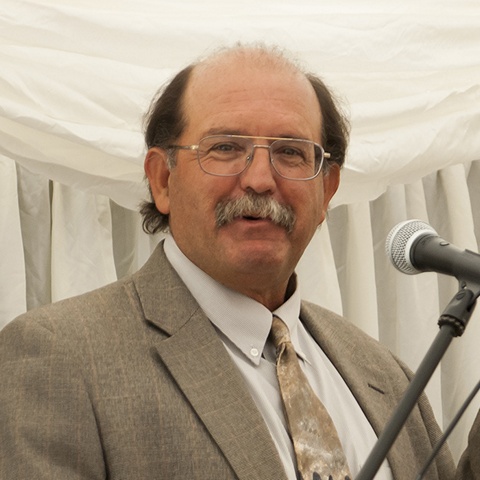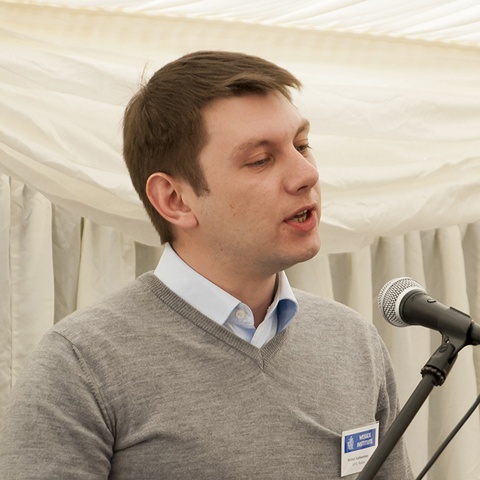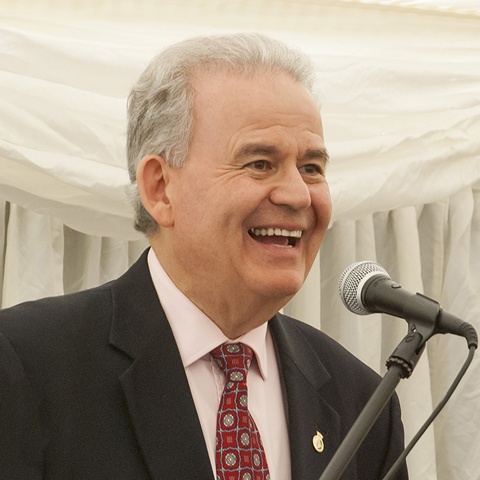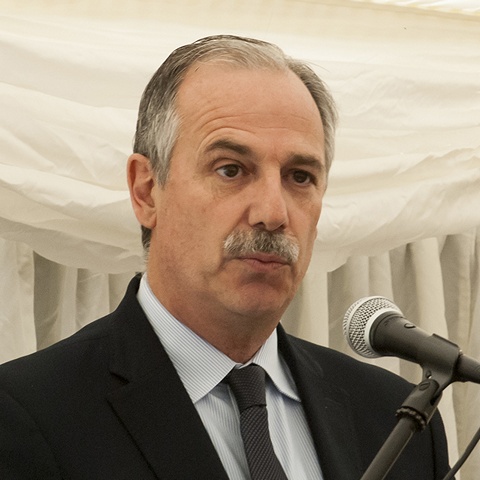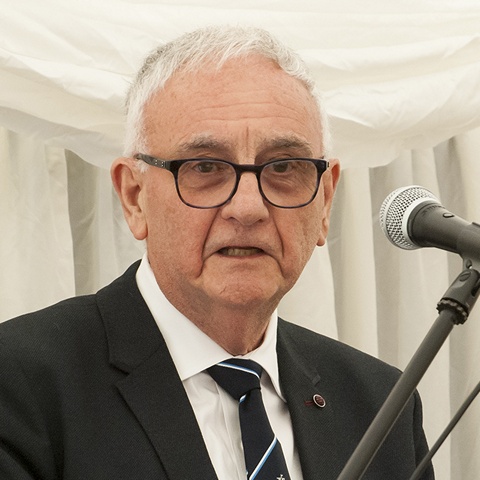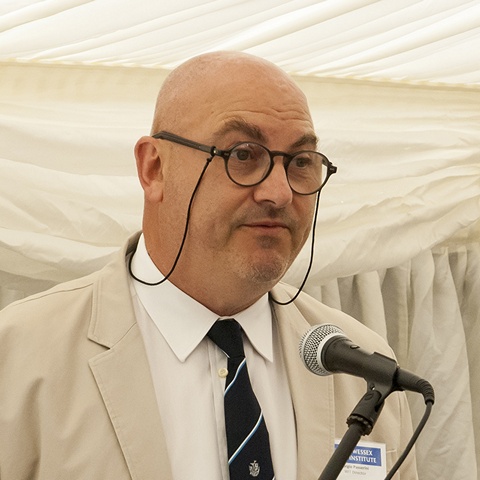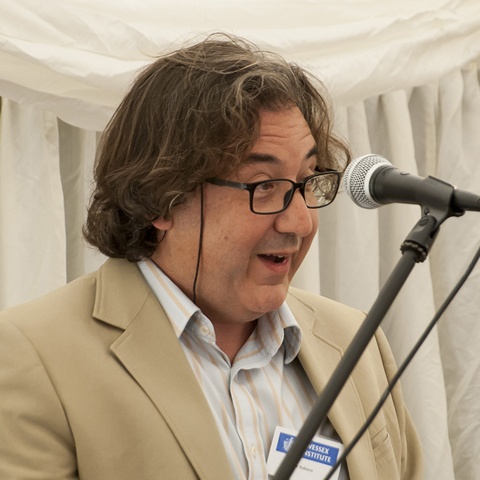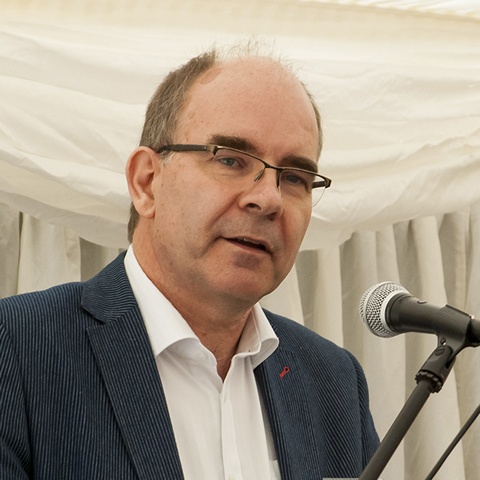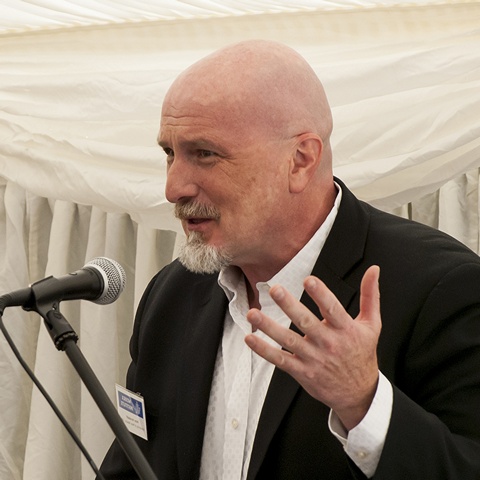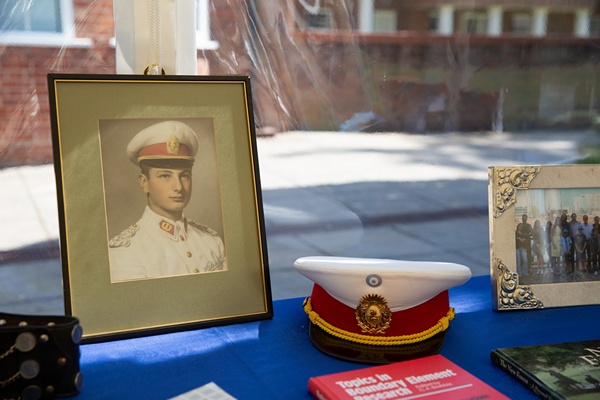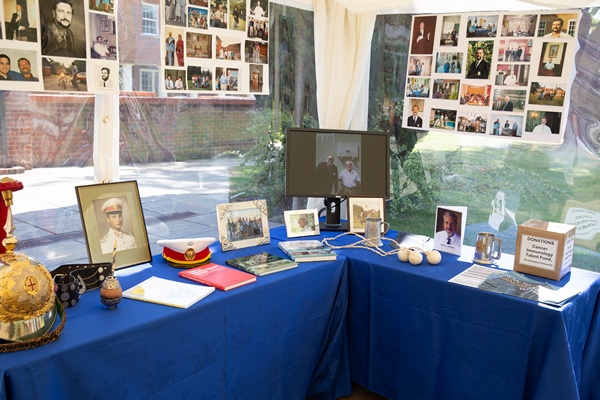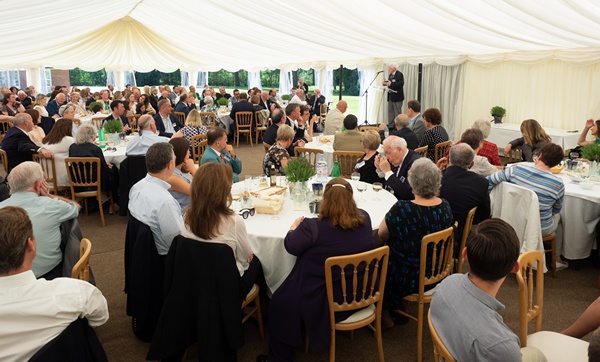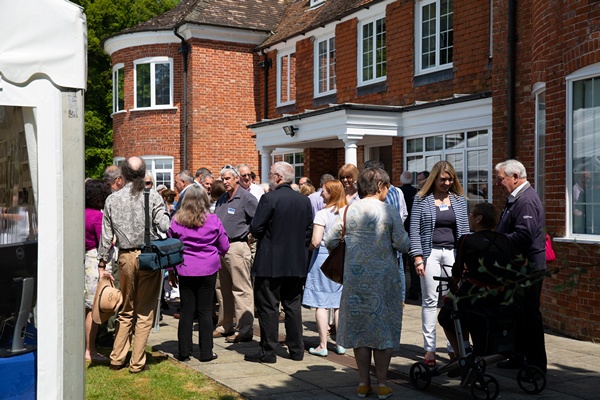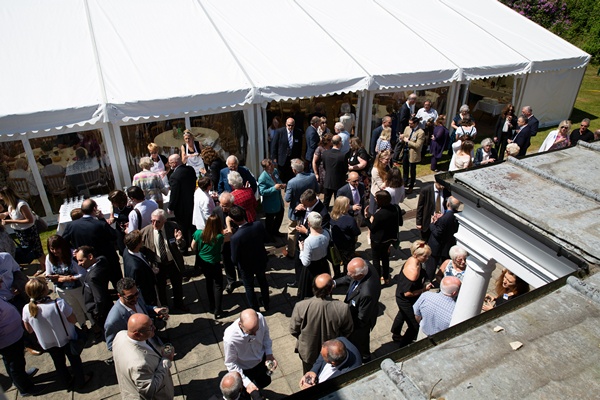The New Forest, UK – 11 September 2018
 The George Green Medal 2018 was presented on the occasion of the 41st International Conference on Boundary Elements and other Mesh Reduction Methods (BEM/MRM 41).
The ceremony took place during a special session on Tuesday 11th
September, followed by a keynote address from the medal recipient.
The George Green Medal 2018 was presented on the occasion of the 41st International Conference on Boundary Elements and other Mesh Reduction Methods (BEM/MRM 41).
The ceremony took place during a special session on Tuesday 11th
September, followed by a keynote address from the medal recipient.
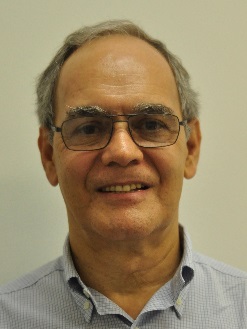
The recipient of the 2018 Medal was Prof Ney Augusto Dumont, Professor and Head of the Department of Civil and Environmental Engineering at the Pontifical Catholic University of Rio de Janeiro (PUC-Rio), Brazil.
“CONCEPTUAL REVIEW OF VARIATIONALLY-BASED HYBRID BOUNDARY ELEMENT METHODS”
The presentation will discuss the hybrid boundary element method (HBEM) which was introduced in 1987 on the basis of the Hellinger-Reissner potential, as a generalization of Pian’s hybrid finite element method. This new two-field formulation makes use of the same fundamental solutions of the collocation boundary element method (CBEM) to interpolate the stress field in the domain of an elastic body, which ends up discretized as a super element with arbitrary shape and arbitrary number of degrees of freedom located along the boundary. Shortly thereafter, a variational counterpart – called hybrid displacement boundary element method (HDBEM) – was proposed by Brebbia and Figueiredo on the basis of the Hu potential and making use of three field functions, with equivalent advantages and disadvantages when compared to the CBEM. The present paper discusses these methods as well as the traditional CBEM. The mathematical and mechanical properties of the resulting matrix equations are investigated and a series of concepts in both HDBEM and CBEM that have not been properly considered by previous authors – particularly concerning convergence issues – are redefined. This review paper does not include a thorough literature survey. It rather completes and extends a paper published by the author in 2003 and carries out a theoretical, comparative analysis of the three methods, with many physical considerations, some recently added conceptual features and a few academic illustrations.
For further information about the George Green Medal, please contact us at the Wessex Institute:
George Green Medal
Wessex Institute
Ashurst Lodge, Ashurst
Southampton
SO40 7AA, UK
Tel: +44 (0) 238 029 3223
Fax: +44 (0) 238 029 2853
Email: wit@wessex.ac.uk
See the following conference web pages for details this and the previous George Green Medal presentations:
 The George Green Medal 2018 was presented on the occasion of the 41st International Conference on Boundary Elements and other Mesh Reduction Methods (BEM/MRM 41).
The ceremony took place during a special session on Tuesday 11th
September, followed by a keynote address from the medal recipient.
The George Green Medal 2018 was presented on the occasion of the 41st International Conference on Boundary Elements and other Mesh Reduction Methods (BEM/MRM 41).
The ceremony took place during a special session on Tuesday 11th
September, followed by a keynote address from the medal recipient.
The George Green Medal was established
by the University of Mississippi at Oxford, Mississippi, USA, and the
Wessex Institute and is supported by Elsevier. It is in honour of the
man who single-handedly set up the basis for the modern Boundary Element
Method, among other notable achievements.
The Medal is awarded to those scientists
who have carried out original work with practical applications in the
field of Boundary Elements and other Mesh Reduction Methods, continuing
in this manner to further develop the pioneering ideas of George Green.
They are also persons of the highest integrity who, by sharing their
knowledge, have helped to establish research groups all around the
world. The Medal is given once a year and is presented during the
BEM/MRM Conference.
George Green was a self-taught genius
who mysteriously delivered one of the most influential mathematics and
physics works of all time. He educated himself in mathematics and
self-published the work “An Essay on the Application of Mathematical
Analysis to the Theories of Electricity and Magnetism”. In his very
first article he derived the Green’s first, second and third identities,
forged the concept of Green’s function, and solved the problem of
electrical potential created by a single charge placed inside a
spherical metal shell. The ideas of Green’s function forever changed the
landscape of science, as many physics and mathematics problems have
been solved using this technique. As Green died early, and his work was
discovered only posthumously, it remains a mystery today how Green could
produce such a masterpiece without the guidance of a great teacher or
school and, in fact, without a formal education. Only recently, due to
the advent of powerful computers, has it been possible to take full
advantage of Green’s pioneering developments.
Prof Ney Augusto Dumont

The recipient of the 2018 Medal was Prof Ney Augusto Dumont, Professor and Head of the Department of Civil and Environmental Engineering at the Pontifical Catholic University of Rio de Janeiro (PUC-Rio), Brazil.
Ney received his BS degree in Civil
Engineering at the Federal University of Bahia, Brazil, in 1972, and the
MS and Dr.-Ing. degrees in Structural Engineering at PUC-Rio, in 1973,
and at the Technische Universität Darmstadt, Germany, in 1978,
respectively.
His research interests are in
computational mechanics, variational methods, hybrid methods, FEM, BEM,
fracture mechanics, time-dependent problems, gradient elasticity and
numerical integration methods.
Ney has supervised 60 MS and PhD works. He also has over 150 publications in international journals, conference proceedings, and book chapters. He is Fellow of Wessex Institute, UK, Member of the Board of Principal Editors of WIT Transactions and Associate Editor of EABE – International Journal on Engineering Analysis with Boundary Elements.
Ney has supervised 60 MS and PhD works. He also has over 150 publications in international journals, conference proceedings, and book chapters. He is Fellow of Wessex Institute, UK, Member of the Board of Principal Editors of WIT Transactions and Associate Editor of EABE – International Journal on Engineering Analysis with Boundary Elements.
Keynote Presentation:
“CONCEPTUAL REVIEW OF VARIATIONALLY-BASED HYBRID BOUNDARY ELEMENT METHODS”
The presentation will discuss the hybrid boundary element method (HBEM) which was introduced in 1987 on the basis of the Hellinger-Reissner potential, as a generalization of Pian’s hybrid finite element method. This new two-field formulation makes use of the same fundamental solutions of the collocation boundary element method (CBEM) to interpolate the stress field in the domain of an elastic body, which ends up discretized as a super element with arbitrary shape and arbitrary number of degrees of freedom located along the boundary. Shortly thereafter, a variational counterpart – called hybrid displacement boundary element method (HDBEM) – was proposed by Brebbia and Figueiredo on the basis of the Hu potential and making use of three field functions, with equivalent advantages and disadvantages when compared to the CBEM. The present paper discusses these methods as well as the traditional CBEM. The mathematical and mechanical properties of the resulting matrix equations are investigated and a series of concepts in both HDBEM and CBEM that have not been properly considered by previous authors – particularly concerning convergence issues – are redefined. This review paper does not include a thorough literature survey. It rather completes and extends a paper published by the author in 2003 and carries out a theoretical, comparative analysis of the three methods, with many physical considerations, some recently added conceptual features and a few academic illustrations.
For further information about the George Green Medal, please contact us at the Wessex Institute:
George Green Medal
Wessex Institute
Ashurst Lodge, Ashurst
Southampton
SO40 7AA, UK
Tel: +44 (0) 238 029 3223
Fax: +44 (0) 238 029 2853
Email: wit@wessex.ac.uk
See the following conference web pages for details this and the previous George Green Medal presentations:
